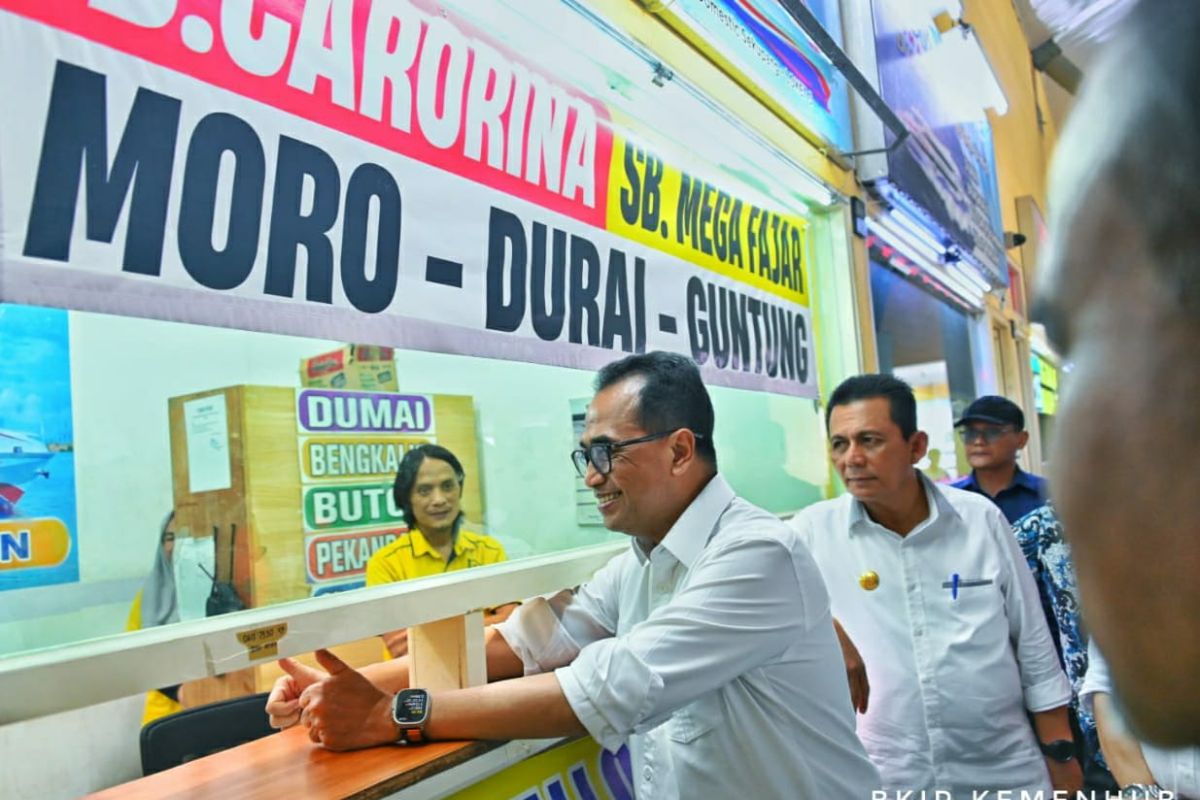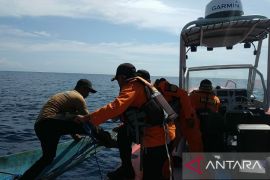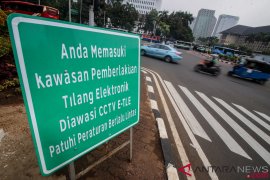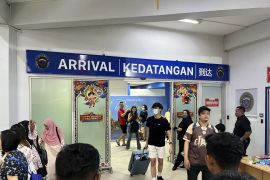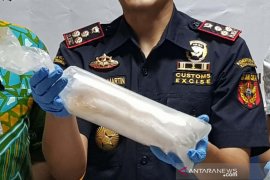During his visit to the largest city in Riau Islands Province on Saturday, he stated that local officials responsible for port management should maintain good services and integrity, considering that they are at the forefront of one of the busiest sea routes globally.
"The ports in Riau Islands are relatively busy due to export-import activities and their proximity to the Strait of Malacca, an international trade route connecting neighboring countries Singapore and Malaysia," he said in a press release received on Sunday.
Sumadi expressed the need for enhancing the improvement and development of ports in Batam and its surrounding areas to optimize their operations and increase competitiveness.
He noted that the Batam region has six ports: Batu Ampar, Sekupang, and Kabil ports serving cargo and passenger boats, and Telaga Punggur, Batam Center, and Nongsa ports exclusively serving passenger boats.
He confirmed the development of a new port on Tanjung Sauh Island in Nongsa, Batam, which will be integrated with Tanjung Sauh Industrial Park, one of the projects designated as nationally strategic.
In addition to port management, Sumadi highlighted the enforcement of AIS implementation on ships operating in the region.
He urged the Batam Harbour Master and Port Authority (KSOP) and the Navigation District Office (Disnav) to intensify law enforcement against ships that disable their AIS, making them undetectable at sea.
Transportation Ministry Regulation No. 18 of 2022 mandates ships operating in Indonesia to activate their AIS while sailing in Indonesian waters. This requirement aligns with the International Maritime Organisation (IMO) convention.
Non-compliance with the AIS requirement can result in fines of up to Rp75 million (approximately US$4,950).
Sumadi emphasized that consistent and firm law enforcement, along with the fines collected, can contribute not only to increased non-tax state revenue but also to the development of infrastructure and transportation services.
He also highlighted the importance of synergy with relevant agencies such as the Directorate General of Customs and the academic community, which can study and provide suggestions for better methods of detecting AIS violations.
Related news: BP Batam invites EU to invest in city's development
Related news: Ministry conducts ASEAN vocational education conference in Batam
Translator: Benardy F, Nabil Ihsan
Editor: Anton Santoso
Copyright © ANTARA 2023
